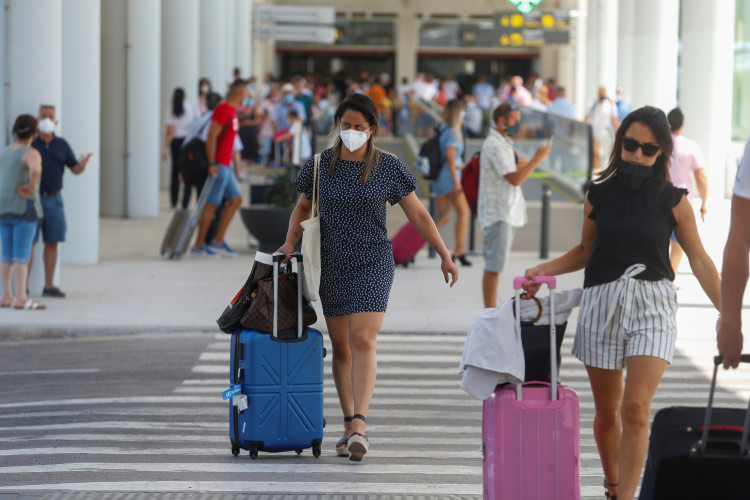European countries continue to impose strict anticoronavirus measures as the continent's case numbers rose past 11 million Tuesday.
Europe Has More Than 11 Million Cases
On Tuesday, Europe's confirmed coronavirus cases went above 11 million, with no signs of a decline. The European Union says it will discuss the continent's "grave" situation.
Many European countries have already imposed stricter anticoronavirus restrictions in a bid to reduce the infections.
Experts have warned that without a COVID-19 vaccine early in 2021, cases in the hard-hit continent are expected to rise more.
There have been protests in several cities as residents and business owners expressed anger over the new rules and restrictions.
Greece Hits Record Daily Cases
On Tuesday, Greece saw 2,166 new confirmed COVID-19 cases - the highest daily increase of infections in the country.
Also Tuesday, northern Greece and Athens entered a new lockdown that is expected to last for at least one month.
Among the businesses that were asked to shut were cinemas, theaters, gyms, restaurants, bars and cafes. Other nonessential business operations were also forced to close.
People involved in these businesses make up around half of the country's more than 11 million residents - prompting fears of the economic effect of new widespread restrictions.
Greece has 44,246 confirmed COVID-19 cases and at least 655 deaths linked to the disease.
Inside Austria's New Restrictions
During the weekend, Austria announced a nighttime curfew of 8 p.m. to 6 a.m. - a new rule that will last until the end of the month.
While junior schools will remain open, universities and secondary schools have been ordered to adopt distance learning to prevent cluster infections.
Museums, indoor sports facilities, gyms and theaters have been ordered to shut. Hotels, on the other hand, will only be allowed to cater to a single guest segment: business travelers.
As with other business groups affected in Europe, Austria's food service sector has been hit hard by the new regulations. Cafes, bars and restaurants can only operate under takeout service.
Austria has reported more than 118,000 confirmed coronavirus cases and at least 1,192 deaths.
Belgium Seeks Germany's Help In Easing Hospital Capacity Crisis
In Belgium, things have become worse as the country has started air-lifting severely ill patients to neighboring Germany to ease overwhelmed hospitals.
Many of the patients who were transferred to Germany on Tuesday were ventilated and intubated during the transfer.
Before the air-lifting started Belgium was already taking severely ill patients across the border in ambulances. This time, helicopters were necessary.
Belgium on Friday announced the closure of all nonessential businesses. The government also encouraged employees to switch to remote working if possible. The new measures are expected to last for six weeks.
As of Tuesday, Belgium had reported over 450,000 confirmed COVID-19 cases and more than 12,000 deaths.
France Considers Stricter Rules For Paris
With more than 1.4 million confirmed coronavirus cases and more than 38,000 deaths, France remains the second hardest-hit country in Europe.
Paris, the condensed French capital, may see a night curfew reimposed as government officials are expected to discuss reports on many residents flouting national rules.
Government spokesman Gabriel Attal said the situation has become "unbearable for those who respect the rules to see other French people flouting them." A frustrated Attal added that the government will "take all the steps needed" to curb France's curbing COVID-19 cases.
France has been on lockdown since Oct. 30, albeit the second lockdown is less strict than the first one in March.
The other European countries that went on partial lockdown last week are Germany and Ireland.






